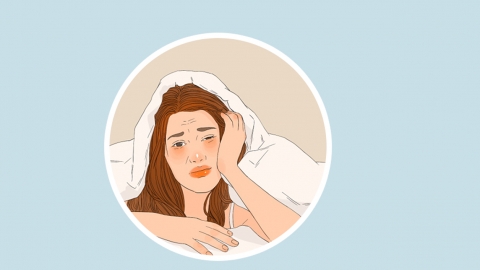What can you eat for anxiety disorder?
Generally, individuals with anxiety disorders can consume foods such as bananas, oats, deep-sea fish, blueberries, and almonds. They may also use medications such as Buspirone Hydrochloride Tablets, Lorazepam Tablets, Estazolam Tablets, Paroxetine Hydrochloride Tablets, and Sertraline Hydrochloride Tablets as directed by a physician. If discomfort occurs, prompt medical attention is recommended. Detailed explanations are as follows:

I. Foods
1. Bananas
Bananas are rich in vitamin B6, magnesium, and tryptophan. Vitamin B6 participates in neurotransmitter synthesis, magnesium regulates nervous system function, and tryptophan serves as a precursor to serotonin. As a neurotransmitter, serotonin improves mood, brings feelings of pleasure and relaxation, and helps alleviate anxiety.
2. Oats
Oats contain abundant B vitamins, magnesium, and dietary fiber. B vitamins regulate the nervous system and maintain its normal function; magnesium relaxes muscles and alleviates tension. Dietary fiber helps maintain intestinal health, which is closely related to the balance of brain neurotransmitters, thereby benefiting anxiety relief.
3. Deep-sea fish
Deep-sea fish, such as salmon and cod, are rich in Omega-3 fatty acids. These fatty acids regulate neurotransmitter transmission in the brain, reduce inflammatory responses, significantly impact the structure and function of brain nerve cells, improve emotional states, and alleviate anxiety symptoms.
4. Blueberries
Blueberries are rich in antioxidants and vitamin C. Antioxidants protect brain cells from free radical damage and maintain normal brain function. Vitamin C participates in neurotransmitter synthesis, helping improve mood and reducing anxiety symptoms.
5. Almonds
Almonds contain abundant vitamin E, magnesium, and healthy fats. Vitamin E is an antioxidant that protects brain nerve cells, magnesium relaxes nerves and muscles, and healthy fats play an important role in maintaining normal brain function and structure. These components work together to help alleviate anxiety.
II. Medications
1. Buspirone Hydrochloride Tablets
Buspirone Hydrochloride Tablets primarily act on the 5-hydroxytryptamine 1A (5-HT1A) receptors in the brain. By modulating the function of the 5-HT nervous system, they exert anxiolytic effects without significant sedative or hypnotic effects and are less likely to cause drug dependence.
2. Lorazepam Tablets
Lorazepam belongs to the benzodiazepine class of drugs. Its primary mechanism of action is enhancing the binding of the central inhibitory neurotransmitter gamma-aminobutyric acid (GABA) to its receptors, increasing the frequency of chloride ion channel openings, leading to membrane hyperpolarization and thereby enhancing the inhibitory effects of GABAergic neurons, resulting in anxiolytic, sedative, and hypnotic effects.
3. Estazolam Tablets
Estazolam acts on benzodiazepine receptors, enhancing the binding of GABA to GABA receptors, increasing the duration of chloride ion channel openings, enhancing GABA's inhibitory effect, thereby exerting anxiolytic, sedative-hypnotic, and anticonvulsant effects.
4. Paroxetine Hydrochloride Tablets
Paroxetine Hydrochloride is a selective serotonin reuptake inhibitor (SSRI) that improves mood by inhibiting the reuptake of serotonin, increasing its concentration in the synaptic cleft, thereby exerting anti-anxiety and antidepressant effects.
5. Sertraline Hydrochloride Tablets
Sertraline Hydrochloride selectively inhibits the reuptake of serotonin, increasing its concentration in the synaptic space, regulating neurotransmitter balance, and achieving the goal of alleviating anxiety and depression symptoms.
In daily life, maintaining a regular sleep schedule and ensuring adequate sleep helps regulate the nervous system, stabilize mood, and reduce the occurrence of anxiety. Engaging in moderate physical exercise can promote the secretion of neurotransmitters such as endorphins in the brain, improve mood, relieve stress, and prevent the development of anxiety disorders.








